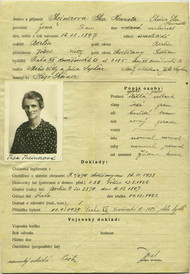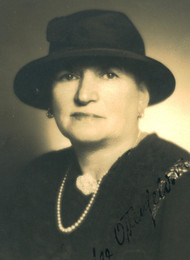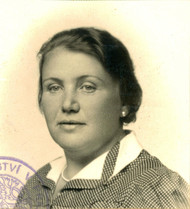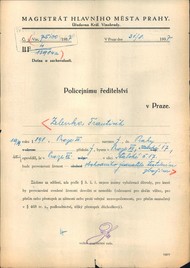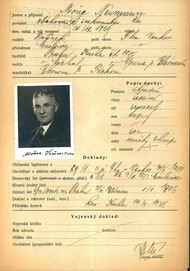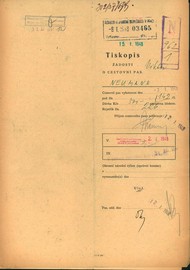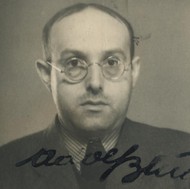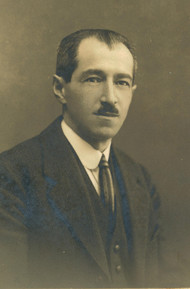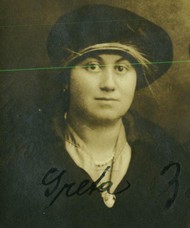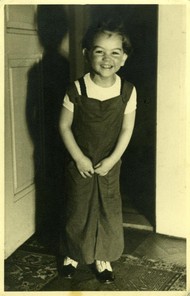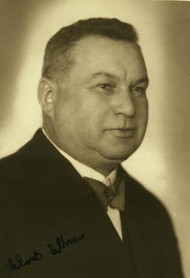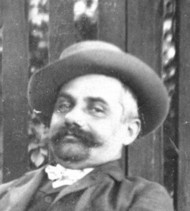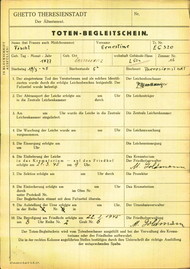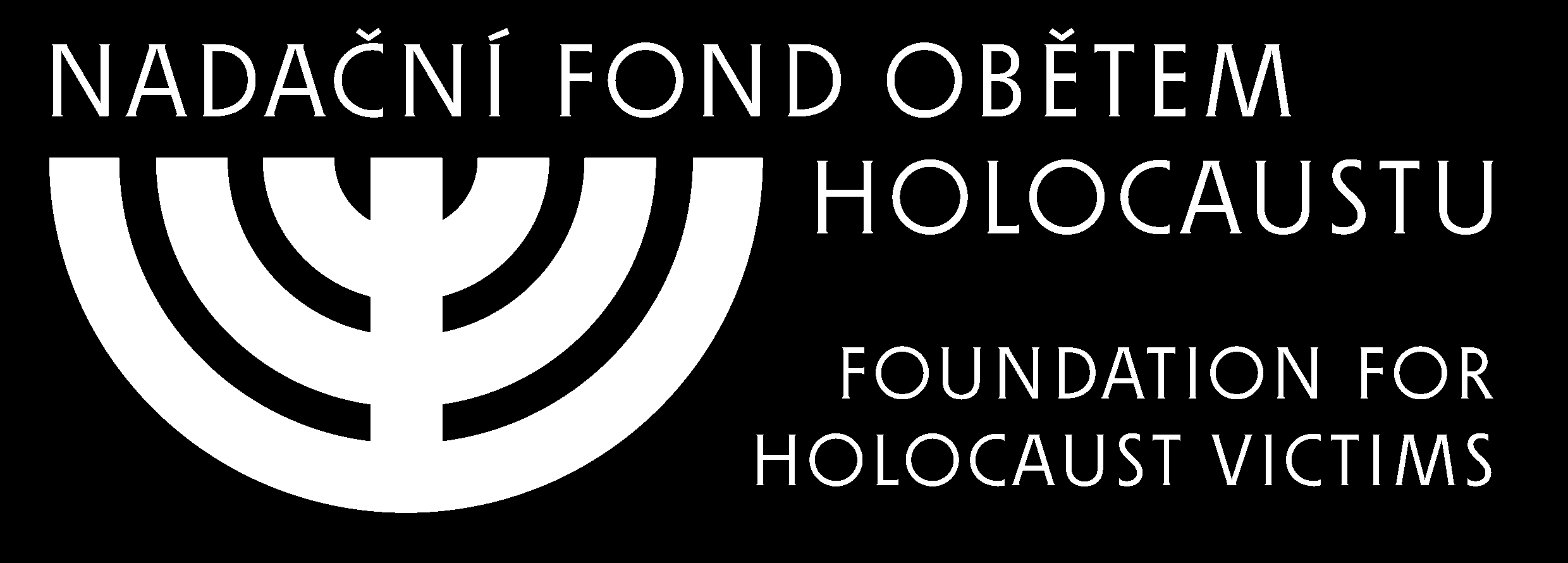
Welcome to the educational module Law at a time of lawlessness. We provide you with the opportunity to explore authentic sources from the Prague police archives, and to learn how individual lives were affected by the laws and decrees that constrained Jews during the Second World War and excluded them from society. We shall also ask what role is played by law (laws, decrees) in a totalitarian and racist regime.
During the period from the Munich Agreement in 1938 until the liberation of Czechoslovakia in 1945, hundreds of bans and orders of all kinds were issued, with a major impact on the everyday life of members of the Jewish minority. Their aim was to push Jews out of society and obstruct their everyday contact with their non-Jewish fellow citizens. These regulations restricted basic human rights such as freedom of movement, shut Jews out from most occupations, forced them to wear special labels and ordered them to give up most of their property.
The Prague police documents show how these decrees affected specific people, who reacted to them in all sorts of ways. Some submitted to them, while many others resisted the racist lawmaking and violated the anti-Jewish bans and orders.
You can investigate the implementation and violation of these discriminatory regulations using examples of individual people who became victims of the Holocaust. During your work you will be able to search for information on the period, places and people, and thus gain the necessary context in which to understand these phenomena.
-
Goals and issues:
-
To understand the role that law and the state can play in violating some people's rights.
-
To understand the process by which Jews were expelled from society, through individual examples.
-
To think about how these anti-Jewish measures might have affected everyday relations between Jews and non-Jews, and whether they could have been implemented without at least partial assistance from the non-Jewish population.
-
How did those persecuted react to the issuing of unjust laws and decrees?
-
Can a law that is not in keeping with basic human rights be valid?
-
Links:
-
Select a document. (In Czech)
-
The
No entry for Jews!
educational project. Anti-Jewish laws and decrees in the Protectorate of Bohemia and Moravia. (In Czech) -
Further information on anti-Jewish laws and decrees. (In Czech)
-
How to use the digitalised documents. (In Czech)
-
Loose methodological guidelines for the Law at a time of lawlessness module



